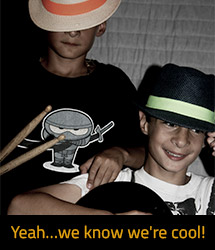It All Began with One Musical Child
Some 40 years ago Denise Kinney was a public school student who was deeply involved in the school’s music program. She loved learning to play an instrument. She enjoyed the camaraderie of playing in the school orchestra. She had a feeling of accomplishment that motivated her, helped her study, and made her a feel a part of the school. Then the school cut back the music program.

But Denise’s mother, a professional violist, realized the tremendous positive impact the program had, not only on her daughter, but on all the kids. She was not willing to just sit back and watch the children lose something so valuable. So Denise’s mother, Welthie Fitzgerald, started the organization that is now known as Musicopia.
What Does Musicopia Do For Students?
The goal of Musicopia was, and continues to be, to bring music education and performance opportunities to children who would otherwise not be able to experience the transformative powers of music, the value of musical discipline or an appreciation of cultural diversity.
Today, Denise Kinney is Executive Director of the organization founded by her mother. And, with the help of time, money and musical instruments donated by philanthropic organizations, and caring individuals, Musicopia is serving more under resourced schools than ever. This year they will offer over 2,000 programs, an all-time high. With school funding in less supply, and more and more programs being cut, there’s never been a greater need for the services Musicopia provides.
With so many more basic, fundamental services now just a distant memory, yo u may question the value of what Musicopia does. But music education is not just a pleasant diversion. Study after study has shown that engagement with music helps children build the skills they need to be successful in life. And isn’t that what schools are supposed to do for our children?
u may question the value of what Musicopia does. But music education is not just a pleasant diversion. Study after study has shown that engagement with music helps children build the skills they need to be successful in life. And isn’t that what schools are supposed to do for our children?
Why Do Children Need Music?
If you still question the importance of music, you’ll be interested to learn what research validates:
- Music lessons improve academic performance
- Music can make you more compassionate
- Music helps you relax
- Music reduces pain
- Music helps you be happier in life
- Music helps you get a better job
Those involved with Musicopia see the benefits of music education with real children every day. They see kids become more focused and more committed to their education as they develop a passion for music. They see lives change. They see pure joy on children’s faces.
However, they also see a growing difficulty in getting the funding they need. Whether it’s lessons, orchestra leadership or much-needed instruments, running an organization like Musicopia requires funding. As it gets more and more challenging for the city to simply keep the schools operating, it becomes more difficult for not for profit organizations like Musicopia to obtain funding.
How Can You Help?
Musicopia needs your help; and every donation makes a difference. Learn more about Musicopia and see how you can join Mind The Gap in contributing to this exceptional and valuable organization. Visit Musicopia here.

